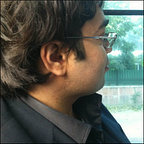Human beings are not a means to an end, but an end in themselves
Four quotes — from Solzhenitsyn, Nietzsche, Isaiah Berlin, and Kant — that I think about in relation to each other when considering ethics and empathy.
Solzhenitsyn on Ideology
Macbeth’s self-justifications were feeble — and his conscience devoured him. Yes, even Iago was a little lamb too. The imagination and the spiritual strength of Shakespeare’s evildoers stopped short at a dozen corpses. Because they had no ideology.
— Alexander Solzhenitsyn, The Gulag Archipelago
Nietzsche on Punishment
Distrust all in whom the impulse to punish is powerful.
— Friedrich Nietzsche, Thus Spoke Zarathustra
Isaiah Berlin’s Credo
If you are truly convinced that there is some solution to all human problems, that one can conceive an ideal society which men can reach if only they do what is necessary to attain it, then you and your followers must believe that no price can be too high to pay in order to open the gates of such a paradise. Only the stupid and malevolent will resist once certain simple truths are put to them. Those who resist must be persuaded; if they cannot be persuaded, laws must be passed to restrain them; if that does not work, then coercion, if need be violence, will inevitably have to be used — if necessary, terror, slaughter…
So we must weigh and measure, bargain, compromise, and prevent the crushing of one form of life by its rivals. I know only too well that this is not a flag under which idealistic and enthusiastic young men and women may wish to march — it seems too tame, too reasonable, too bourgeois, it does not engage the generous emotions. But you must believe me, one cannot have everything one wants — not only in practice, but even in theory. The denial of this, the search for a single, overarching ideal because it is the one and only true one for humanity, invariably leads to coercion. And then to destruction, blood — eggs are broken, but the omelette is not in sight, there is only an infinite number of eggs, human lives, ready for the breaking. And in the end the passionate idealists forget the omelette, and just go on breaking eggs.
— Isaiah Berlin, A Message to the 21st Century
Immanuel Kant on Humanity as an End in Itself
Act in such a way that you treat humanity, whether in your own person or in the person of another, always at the same time as an end and never simply as a means.
— Immanuel Kant, Groundwork of the Metaphysics of Morals
